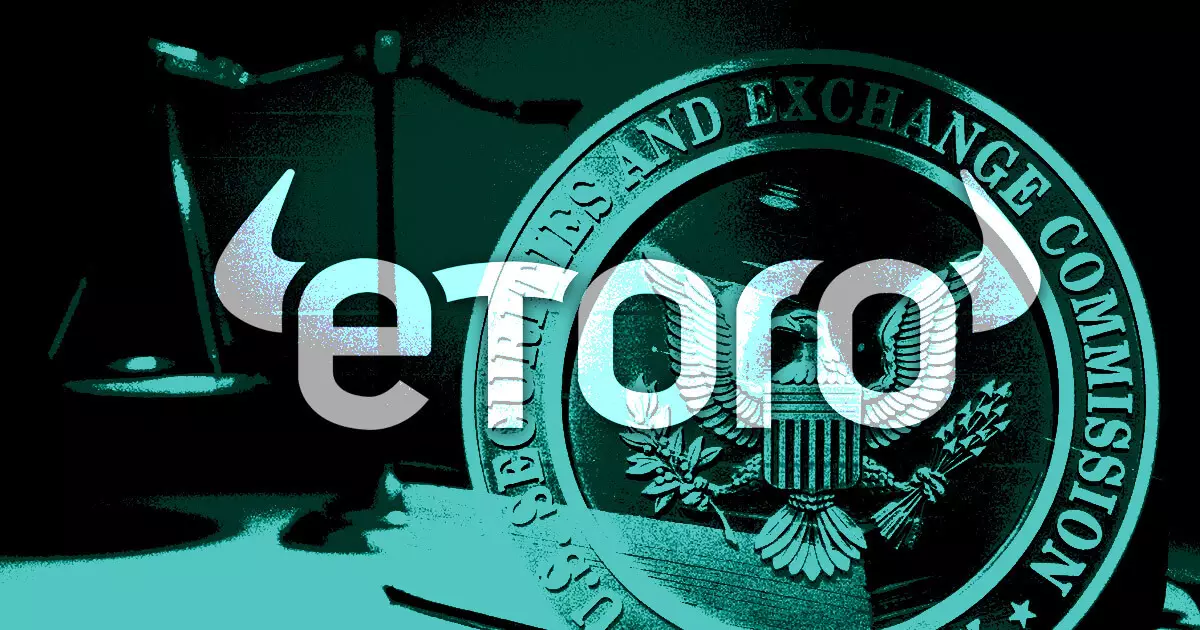In a significant move, trading platform eToro announced on September 12 that it would halt trading for the majority of digital assets available on its platform. This decision arises in the wake of a $1.5 million settlement with the U.S. Securities and Exchange Commission (SEC). The controversial settlement stems from an SEC investigation that identified eToro’s alleged provision of trading opportunities for crypto assets considered securities, all without adhering to federal registration stipulations.
Although eToro did not formally admit to any wrongdoing, the implications of the settlement are profound. The platform will limit its offerings to a select few cryptocurrencies, namely Bitcoin, Bitcoin Cash, and Ethereum. This limitation not only reflects the firm’s desire to comply with legal requirements but also signifies a shift in how such trading platforms may navigate the increasingly demanding regulatory landscape surrounding digital assets.
Gurbir S. Grewal, the SEC’s Director of Enforcement, highlighted that the fine aims to pressure eToro into compliance while allowing it to maintain operations in the U.S. market. By eliminating tokens categorized as investment contracts from its portfolio, eToro is paving the way for improved investor security and establishing a framework for other cryptocurrency intermediaries to follow. This action is part of a wider crackdown by the SEC on various crypto entities, which also targets firms like Binance, Kraken, and Coinbase.
The approach taken by the SEC indicates a future where regulatory scrutiny is paramount in the cryptocurrency sector. With hints of potential legal actions against other firms such as Robinhood and the NFT marketplace OpenSea, eToro’s predicament might merely be the first wave of a broader regulatory tide that will redefine how digital asset trading is conducted.
In light of the settlement, eToro’s co-founder and CEO, Yoni Assia, expressed optimism about the company’s future, emphasizing the “strategic” nature of the agreement. He viewed this settlement as an opportunity to refocus on compliance and responsibly navigate U.S. regulations while delivering innovative products to its user base. The company’s adherence to regulatory frameworks in regions such as the UK and Europe suggests that eToro is positioning itself for future success, contingent upon the establishment of a robust regulatory framework in the U.S.
Users have been advised to either close their digital asset positions or transfer their supported cryptocurrencies to the eToro wallet by March 11, 2025. The announcement included a deadline of March 18, 2025, for any remaining unsupported crypto positions, which will be liquidated, further underscoring the shift in eToro’s operational model.
As eToro recalibrates its trading practices, it becomes apparent that compliance with regulatory standards is no longer an option but a necessity for cryptocurrency platforms. The SEC’s actions and eToro’s reactive measures indicate a significant shift in the digital asset trading paradigm, one where regulatory compliance will dictate the evolution of trading practices. As this landscape continues to develop, eToro’s ability to adapt will be key to its sustained success and relevance in the crypto industry.


Leave a Reply